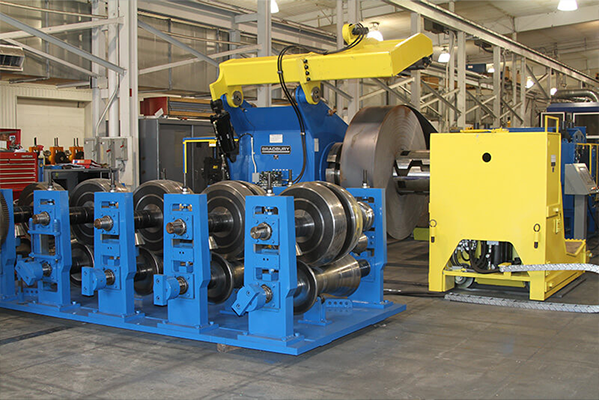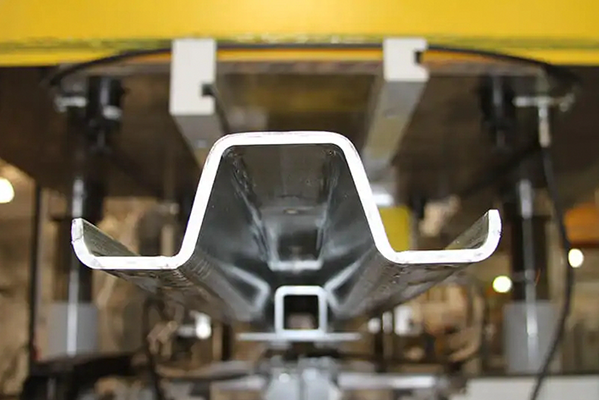Navigation Menu
Contact Us
- Email:
- info@wxavatar.com
- Address:
- Yurong Village, Yuqi Street, Huishan District, Wuxi, China.
Release Date:Jun 27, 2025 Visit:69 Source:Roll Forming Machine Factory
In metal fabrication, choosing the right folding machine significantly impacts productivity, precision, and operational costs. Two common options are hydraulic long folders and mechanical folding machines. Each type has distinct advantages depending on the application. This article compares their key differences to help fabricators make informed decisions.

Key Differences Between Hydraulic and Mechanical Folding Machines
1. Bending Mechanism
Hydraulic Long Folders: Use hydraulic pressure to apply force, allowing for smooth, controlled bends with adjustable tonnage. This makes them ideal for varying material thicknesses and complex bends.
Mechanical Folding Machines: Rely on a flywheel and clutch system to generate force, providing fast, repetitive bends but with less flexibility in adjusting pressure during operation.
2. Precision and Control
Hydraulic Machines: Offer superior control over bending speed and pressure, reducing the risk of material deformation. Programmable backgauges and CNC integration enhance accuracy for intricate projects.
Mechanical Machines: Deliver consistent bends at high speeds but may lack fine-tuning capabilities, making them better suited for simpler, high-volume tasks.
3. Speed and Efficiency
Hydraulic Folders: Operate at moderate speeds but excel in versatility, handling a wide range of materials and thicknesses without manual adjustments.
Mechanical Folders: Perform faster in repetitive production runs but may require more setup time when switching between different jobs.
4. Maintenance and Durability
Hydraulic Systems: Require regular fluid checks and seal replacements but generally experience less wear on moving parts due to smoother operation.
Mechanical Systems: Have fewer fluid-related maintenance needs but may suffer from higher mechanical wear over time, particularly in high-speed applications.
5. Cost Considerations
Hydraulic Machines: Typically have a higher initial cost but provide long-term value through adaptability and reduced material waste.
Mechanical Machines: Often more affordable upfront but may incur higher operational costs in complex or variable production environments.
Which Machine Is Right for Your Needs?
Choose Hydraulic Long Folders if your work involves diverse materials, custom bends, or requires precise control.
Opt for Mechanical Folding Machines if your primary focus is high-speed, repetitive production of standardized parts.

Conclusion
Both hydraulic long folders and mechanical folding machines have distinct strengths. Hydraulic models offer flexibility and precision, while mechanical machines prioritize speed and simplicity. By evaluating production requirements, material types, and budget, fabricators can select the best solution to optimize efficiency and output quality.
Understanding these differences ensures businesses invest in equipment that aligns with their operational goals, ultimately improving workflow and profitability.